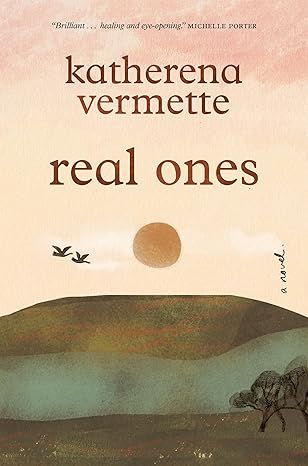4 Stars
This book, which focuses on two Métis sisters, June and Lyn, examines what happens when their estranged white mother Renee is called out as a pretendian. An artist, going by the name Raven Bearclaw, she has enjoyed considerable success copying the Indigenous Woodland Art style. When the story is made public, the sisters read enraged online commentary. As they consider what effects Renee’s false representation will have on them and what to do about her lies, painful memories of their relationships with their mother resurface.
The two siblings have reacted differently to their childhood experiences involving their mother. Lyn, a potter and single mother, has anger that has never gone away and has abandonment issues because of Renee’s actions in the past. June is a respected Métis Studies professor who fears her reputation will suffer because of her mother’s falsehoods.
What the novel emphasizes is that it is Indigenous people, who already carry the weight of identity issues, who are re-traumatized when people falsely claim Indigenous identity; it is people like Lyn and June who have to prove that they are actually Métis. June discusses “the problems with Redface or the taking on of any face. How when those with a power take from those who do not, it is not just taking up space, it’s actually violence.” The book also emphasizes that self-identification is insufficient: “’Racial identity isn’t only about you, it’s about community . . . Who you claim but also who claims you.’”
It is obvious that the author is very proud of her Métis heritage: “’Métis actually means a whole people with a history, language, culture and years and years of struggle. These fakers don’t get to have all that.’” And she emphasizes that others should take pride in their heritage as well. Renee, for instance, is part Mennonite and June says, “It’s a rich, colourful, surprising, exceptional culture in its own right. By taking our stories she is effectively discrediting her own, and those of her actual ancestors. That’s sad to me. That’s a missed opportunity.’”
I loved the portrayal of the relationship between the two sisters. It’s obvious that the two love each other, though there are inevitable tensions. And as I know from personal experience, siblings experience childhood events differently and will remember them differently.
Renee is a character who did not arouse much empathy in me. Not only does she take advantage of grants intended for Indigenous artists and accept awards as if she qualified for them, she even uses her ex-husband’s story of growing up Métis as her own. I agree with June that this last is a “particularly sharp violation.” However, her ex-husband, the girls’ father, explains Renee’s anger by saying that “’some people get like that when they’re hurting, always mad at someone.’” He also suggests that she may have a border personality disorder: “’it means you can’t control what you do or your emotions or something. Extreme, that’s it. Those people are extreme in how they deal with things.’” Clearly, we are not to see her as totally evil.
The subject of forgiveness is discussed. When the sisters discuss how to forgive their mother, “’someone who doesn’t think they did anything wrong,” it is suggested that “’You don’t forgive people for them, you forgive them for you . . . so you can stop harping on it. Stop letting it all affect you.’”
This novel is very timely because there have been a number of instances of pretendianism in the news recently, including the controversy surrounding Buffy Sainte-Marie’s dubious claims of Indigeneity. I recommend this look at the dehumanizing effects of pretendianism.
Note: I received an eARC from the publisher via NetGalley.

No comments:
Post a Comment